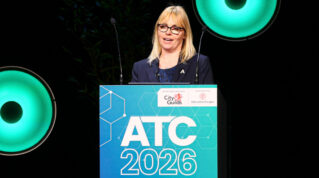The Institute for Apprenticeships and Technical Education has been slated for sneaking out multiple reforms to apprenticeship assessment rules without consultation.
IfATE’s ‘developing an end-point assessment plan’ guidance was quietly updated last week and appeared to remove the requirement for end-point assessment to assess every knowledge, skill and behaviour (KSB) involved in an assessment plan.
It also suggested that officials have moved from requiring a “minimum” of two assessment methods to a maximum of two.
EPAOs were left frustrated with what appeared to be sudden and significant changes especially after then-skills minister Robert Halfon told the sector that officials will “improve the assessment model”, in his letter about this year’s national apprenticeship achievement rates.
But there was radio silence from IfATE on the reasons behind the changes, which experts say would have “significant” financial and resourcing implications, or in-depth detail on how the institute expects them to be delivered.
The institute updated the guidance yet again this Thursday after angry EPAOs and the Federation of Awarding Bodies flagged their concern.
IfATE has now claimed that it is “not moving from a minimum of two assessment methods to a maximum of two assessment methods”. Instead, the institute is “making it clear that trailblazers should justify the requirement for more than two methods for new standards and standards under review”.
The institute also confusingly said it was “not changing our direction on which KSBs should be assessed at this time” and is “committed to working with stakeholders on whether the system should be optimised in this regard.”
Terry Fennell, chief executive of food specialist awarding body and end-point assessment organisation FDQ, said: “It is incredibly frustrating when policymakers change the rules for EPAs without prior consultation with the delivery sector.
“This tinkering with methodologies and KSB principles has significant financial and resourcing implications for EPAOs working in a now regulated market where consistency, validity and compliance are critical for public confidence in the EPA product.
“Whilst I do appreciate the time is probably right to review certain aspects of EPA, surely it would be better to work with the EPAO market and seek our expertise as part of an improvement exercise.
“I would also ask for any consultation to be conducted in an open and transparent way ensuring employers and apprentices have their say as in our experience satisfaction is actually very high.”
EPA specialist and consultant Jacqui Molkenthin added: “The confusion is expounded by IfATE’s failure to highlight what the changes are, it simply overwrites its existing web text. It should adopt the DfE approach of issuing a ‘summary of changes’ document when it updates key policies.”
IfATE admitted to FE Week that it “felt the guidance we provided last week was not clear enough”, which led to a further update on Thursday.
A spokesperson said: “We are looking at our approach to the number of assessment methods used in plans and whether the sampling of KSBs would maintain validity whilst improving proportionality.
“We intend to explore these issues with stakeholders, including EPAOs. The primary motivation is to improve the performance and experience of EPA for the benefit of employers and apprentices.”
Any changes are expected to only apply to new standards or those going through a revision process.
Charlotte Bosworth, chief executive of large EPAO Innovate Awarding, said looking at the amount of assessment methods used and the way KSBs are assessed, whether in full or in part via sampling, are “all areas that should be looked at and reviewed as the EPA market matures”.
But she added the government needs to ensure any changes to assessment plans are applied consistently across all EPAOs and different approaches are not being taken that are “damaging to the quality of apprenticeships, risk regulatory compliance, and are damaging to end point assessment outcomes”.
Kion Ahadi, chief executive of the Federation of Awarding Bodies, said: “It is unfortunate that guidance was updated without it being clear on the rationale for changing the guidance on the number of assessment methods and moving to a sampling approach for some KSBs.
“We all welcome positive change to make independent EPA as efficient and as high quality as possible, but we need to ensure this is communicated appropriately and that the EPAO sector is consulted and inputs into any future proposals.”
















Your thoughts